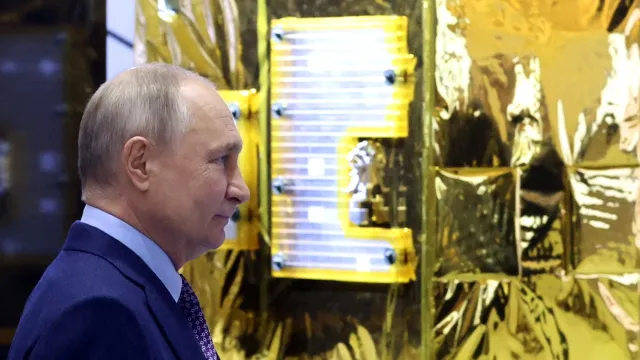
Russia has firmly rejected accusations from the United States that it has launched a weapon into space capable of targeting other satellites. This denial comes in response to a statement from U.S. Space Command, which suggested that the recent launch of a Soyuz rocket from Russia’s Plesetsk site involved a counterspace weapon. The Kremlin, however, has dismissed these assertions, labeling them as “fake news.”
On Tuesday, U.S. Space Command pointed to the launch earlier this month, stating it likely included "a counterspace weapon presumably capable of attacking other satellites in low Earth orbit." According to U.S. officials, this weapon was part of the COSMOS 2576 satellite, known for its so-called "inspector" capabilities, which have previously exhibited what U.S. authorities describe as reckless behavior in space.
In a strong rebuttal, Russian Deputy Foreign Minister Sergei Ryabkov downplayed the U.S. claims, stating that Washington’s allegations are unfounded and that Russia's space program strictly adheres to peaceful purposes. "I don’t think we should respond to any fake news from Washington," Ryabkov was quoted by the Interfax news agency. "The Americans can say whatever they want but our policy does not change from this," he added, underscoring Moscow’s consistent opposition to the deployment of strike weapons in low-Earth orbit.
The Kremlin’s spokesperson, Dmitry Peskov, also declined to provide detailed comments on the U.S. assertions but reiterated that Russia is in full compliance with international law. “We are not violating anything. We have repeatedly advocated a ban on the deployment of any weapons into space. Unfortunately, our initiatives were rejected, including by the United States,” Peskov told reporters.
The May 17 launch, described by U.S. Space Command as occurring on May 16, involved the deployment of multiple satellites, including civilian ones intended for different orbits. However, it is the military satellite COSMOS 2576 that has drawn the most scrutiny. While it has not approached any U.S. satellites, it remains in the same orbital ring as USA 314, a bus-sized National Reconnaissance Office (NRO) satellite launched in April 2021.
President Vladimir Putin and former defense minister Sergei Shoigu had previously denied similar U.S. accusations in February, asserting that Russia is not developing a space-based anti-satellite nuclear weapon. They emphasized that any such claims are part of a broader disinformation campaign by the U.S. to discredit Russia’s advancements in space technology.
Ryabkov also mentioned that the development of Russia’s space program is proceeding as planned, with tasks aimed at enhancing defense capabilities. However, he stressed that this development does not include the deployment of weapons in space. He criticized the United States for dismissing Russian proposals aimed at strengthening space security, including a draft treaty on the prevention of an arms race in space.
U.S. intelligence agencies had been monitoring the launch of COSMOS 2576, having informed their allies about their assessment of the satellite’s capabilities prior to its deployment. Despite these concerns, the satellite's actions in orbit have so far not demonstrated any aggressive maneuvers towards U.S. space assets.
The international community continues to watch these developments closely, as the militarization of space remains a contentious issue. Both Russia and the United States have expressed the need for space to remain a peaceful domain, but mutual distrust and strategic competition have led to increased tensions and accusations.
As the situation evolves, the discourse around space security and the prevention of an arms race in space will likely intensify, with both nations advocating for their respective positions on the global stage.











